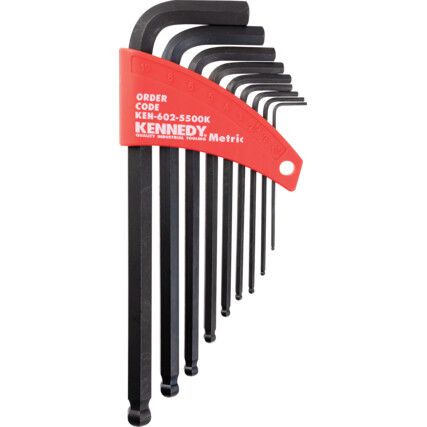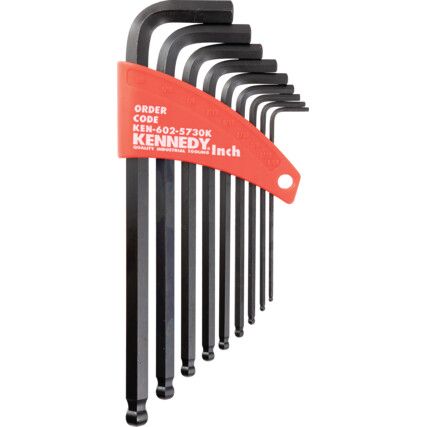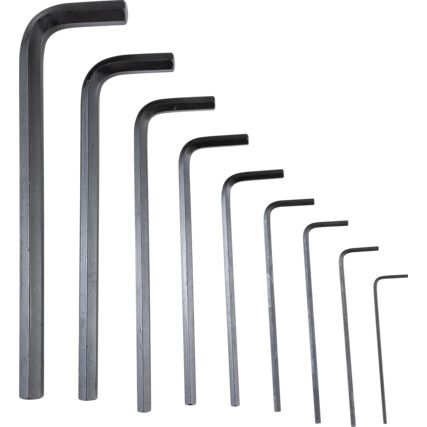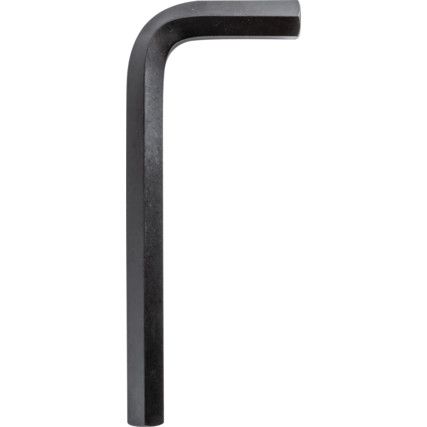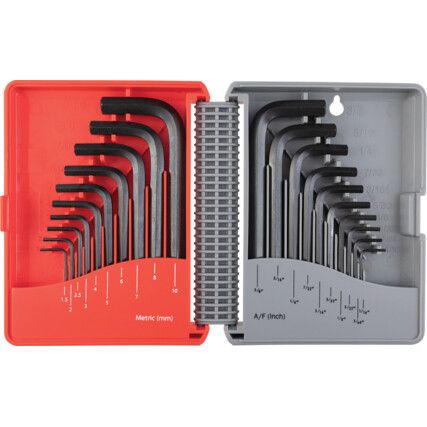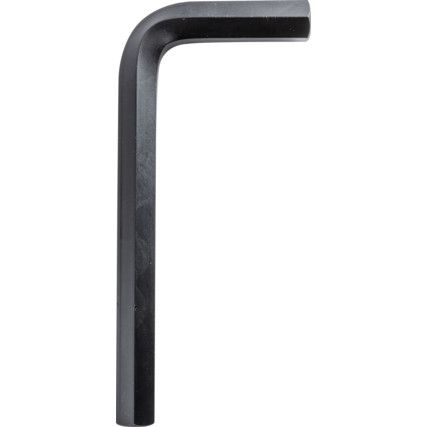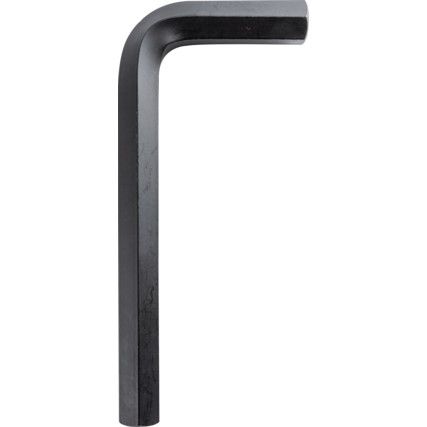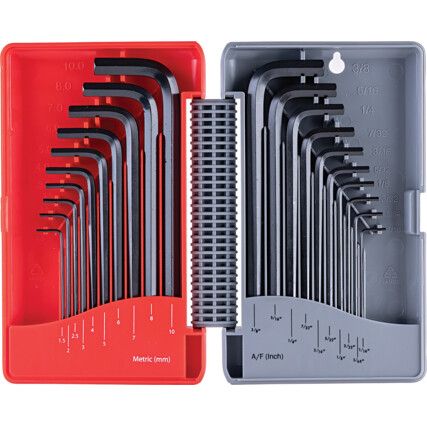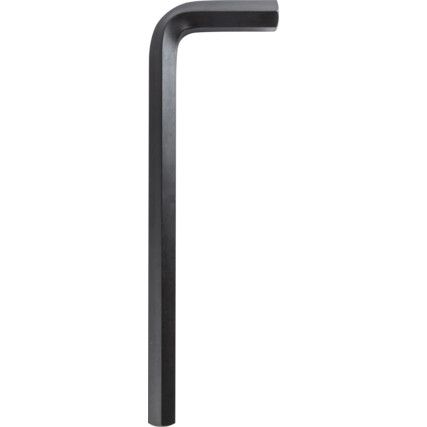Hex Keys
Hex keys also referred to as Allen keys or Allen wrenches are used in the application of loosening and tightening hexagonal fasteners. They are used in a variety of industries and are also a handy domestic tool with many uses. They are available in a number of different sizes with both imperial and metric variations available.
Cromwell stocks an extensive range of hex keys with popular brands including, Bondhus, Kennedy and Facom.
##Types of hex keys
There are a few variations of hex keys available, the most common and the one that is synonymous with the tern Allen key is the L-shaped hex key. To help choose the right key for the job we have outlined the most common types below as well as a few of their features and benefits.
• Folding hex keys Folding hex hays are a multi tool variant and are handy pocket tools. Easily stored and carried they feature a number of sizes of key making them highly versatile. They are particularly useful as a portable bike tool, to make adjustments on the go.
• Straight hex keys These resemble screwdrivers and function in much the same way except the head features either a flat or ball ended hex key, instead of the traditional screwdriver bit.
• L-shaped hex keys The most common type of hex key. The L-shaped key is double ended allowing you to use torque to tighten and loosen fasteners with the short end, whilst the long end can be used in the same way as a straight key.
• T-handle hex keys The T-handle feature a good grip thanks to the shape of its handle, from where it gets its moniker, allowing for significantly increased torque.
• Ball end hex keys Ball ended hex keys allow access to fasteners in tighter spaces, giving the user an in creased range of angles from which to access the part thanks to its rounded hexagonal bulb-shaped head.
##Considerations when choosing a hex key
There are a number of things to take into account when choosing the right hex key for the job, below is a few of the main points of consideration.
• Size of fastener - probably the most important consideration as the wrong sized key either won't fit the fastener or fit loosely resulting in either damaging the tool or rounding off the fastener making it difficult to remove.
• **Torque needed **- When tightening or loosening a fastener (particularly loosening) the amount of torque needed to move the part is key. An L-shape or T-handle have particular leverage in this area, their extended handles allow for greater torque when dealing with fasteners
• **Access to fastener **- Operating in tight working environments can result in limited access to the fastener you're working on. Ball-end hex keys allow for tightening and loosening of fasteners at a variety of angles, so if you're working in places where space is limited they might be the answer to your troubles.
###FAQ
What sizes do hex keys come in?
Hex keys are available in many different sizes and in both imperial and metric measurements. The size needed will depend on the size of fastener you're working with.
What are hex keys made of?
Hex keys are typically made from steel or a steel alloy, some feature a black oxidised coating to help prevent corrosion and to help resist wear.
What size hex keys do I need?
This will all depend on the size of the slot in the fastener, if you know the size then picking the right size key should be a doddle, if you don't know the size of the fastener then try a couple of sizes that look right in the slot before applying pressure. The correct fit should be tight without much room to move the end of the key in the slot. An Allen key that sits too loosely is likely to shear off the corners of the slot, making the fastener incredibly difficult to remove.

